
Port Antonio: Jamaica's Hidden Gem
Port Antonio, nestled on Jamaica's northeast coast, is a tranquil paradise that offers an escape from the bustling tourist hubs. Known for its lush landscapes, pristine beaches, and rich cultural heritage, this charming town is a haven for nature lovers and adventure seekers alike. The town's relaxed vibe and friendly locals create an inviting atmosphere that makes visitors feel right at home. One of Port Antonio's standout features is the stunning Blue Lagoon, a turquoise oasis surrounded by verdant hills. Visitors can take a refreshing dip or enjoy a serene boat ride on its crystal-clear waters. Another must-see is the Reach Falls, where cascading waterfalls and natural pools provide a perfect setting for a day of exploration and relaxation. Port Antonio is also rich in history and culture. The town itself is dotted with colonial-era buildings and local markets where you can sample Jamaican delicacies and purchase handcrafted souvenirs. The nearby Navy Island and Folly Ruins offer glimpses into the area's storied past. For a more immersive experience, visit the Maroon villages in the Blue Mountains, where you can learn about the resilient Maroon culture and traditions. The local cuisine is a delightful blend of flavors, with fresh seafood and jerk dishes taking center stage. Don't miss the chance to savor a meal at one of the many seaside restaurants, where you can enjoy breathtaking views while dining on delicious Jamaican fare. Whether you're exploring hidden waterfalls, lounging on secluded beaches, or delving into the local history, Port Antonio promises a memorable and enriching experience for every traveler.
Local tips in Port Antonio
- Visit the Blue Lagoon early in the morning to avoid crowds and enjoy the serene beauty.
- Bring water shoes for exploring Reach Falls as the rocks can be slippery.
- Try local jerk chicken at Boston Bay, known as the birthplace of jerk cuisine.
- Hire a local guide for a more enriching experience when visiting Maroon villages in the Blue Mountains.
- Carry cash, as some local markets and smaller vendors may not accept credit cards.
Port Antonio: Jamaica's Hidden Gem
Port Antonio, nestled on Jamaica's northeast coast, is a tranquil paradise that offers an escape from the bustling tourist hubs. Known for its lush landscapes, pristine beaches, and rich cultural heritage, this charming town is a haven for nature lovers and adventure seekers alike. The town's relaxed vibe and friendly locals create an inviting atmosphere that makes visitors feel right at home. One of Port Antonio's standout features is the stunning Blue Lagoon, a turquoise oasis surrounded by verdant hills. Visitors can take a refreshing dip or enjoy a serene boat ride on its crystal-clear waters. Another must-see is the Reach Falls, where cascading waterfalls and natural pools provide a perfect setting for a day of exploration and relaxation. Port Antonio is also rich in history and culture. The town itself is dotted with colonial-era buildings and local markets where you can sample Jamaican delicacies and purchase handcrafted souvenirs. The nearby Navy Island and Folly Ruins offer glimpses into the area's storied past. For a more immersive experience, visit the Maroon villages in the Blue Mountains, where you can learn about the resilient Maroon culture and traditions. The local cuisine is a delightful blend of flavors, with fresh seafood and jerk dishes taking center stage. Don't miss the chance to savor a meal at one of the many seaside restaurants, where you can enjoy breathtaking views while dining on delicious Jamaican fare. Whether you're exploring hidden waterfalls, lounging on secluded beaches, or delving into the local history, Port Antonio promises a memorable and enriching experience for every traveler.
When is the best time to go to Port Antonio?
Iconic landmarks you can’t miss
The World Famous Dunn's River Falls & Park
Experience Jamaica's natural wonder: Climb the stunning Dunn's River Falls, a 'living phenomenon' cascading into the Caribbean Sea near Ocho Rios.
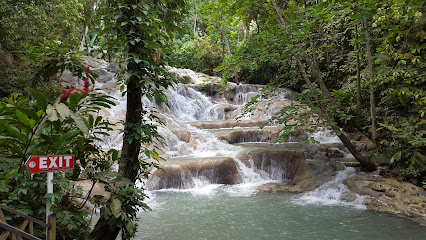
Frenchman's Cove Resort
Discover Jamaica's hidden gem: Frenchman's Cove Resort, where a freshwater river meets a pristine beach on the turquoise Caribbean Sea.

Somerset Falls
Discover the beauty and tranquility of Somerset Falls in Portland, Jamaica, a historic site with cascading waterfalls and lush tropical gardens.
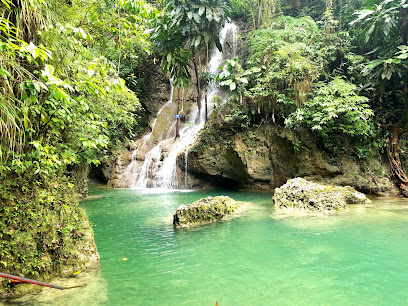
Winnifred Beach
Explore the serene beauty of Winnifred Beach, Jamaica's hidden gem known for its crystal-clear waters and vibrant local culture.
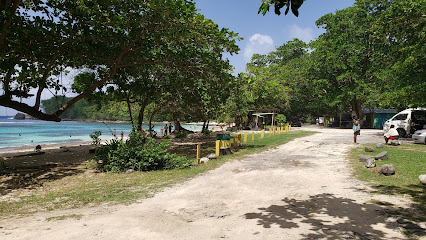
Reach Falls
Explore the breathtaking beauty of Reach Falls, an ecological park in Jamaica, where nature's tranquility meets vibrant landscapes and refreshing waters.
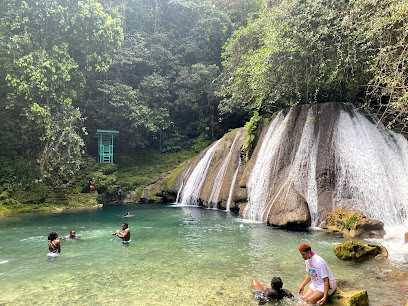
Fort Charles
Discover Fort Charles in Port Royal: a historic fortress with maritime tales, stunning views, and a topsy-turvy 'Giddy House' experience.
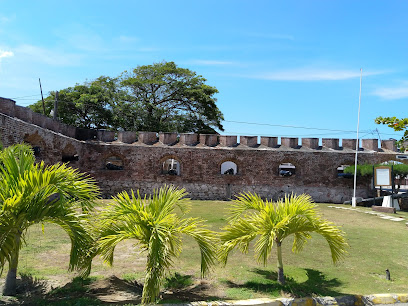
Blue Lagoon Ruffkutt tours
Discover the mesmerizing depths and turquoise waters of Jamaica's Blue Lagoon, a natural paradise near Port Antonio offering serene beauty and refreshing swims.
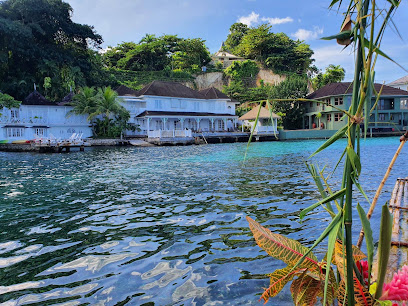
Errol Flynn Marina
Experience the allure of Port Antonio at Errol Flynn Marina: where maritime history meets natural beauty and world-class yachting.
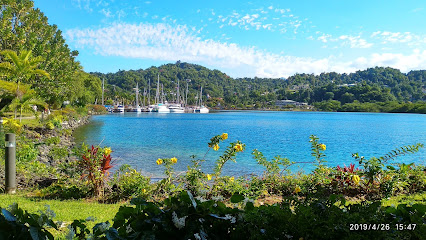
Great Huts Resort
Experience Jamaica's soul at Great Huts Resort: Where African heritage meets Caribbean paradise on the cliffs of Boston Bay. A unique eco-cultural escape.

Bay View Eco Resort & Spa
Discover eco-friendly tranquility at Bay View Eco Resort & Spa in Port Antonio, Jamaica, with stunning views and sustainable practices.
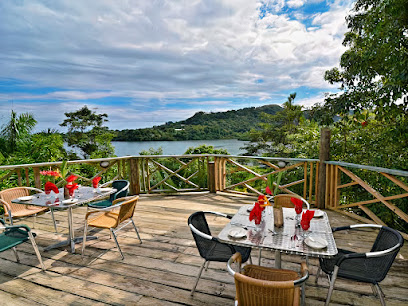
Pellew Island
Explore Pellew Island, Jamaica - a serene tourist attraction with stunning landscapes, rich history, and pristine beaches for a perfect getaway.
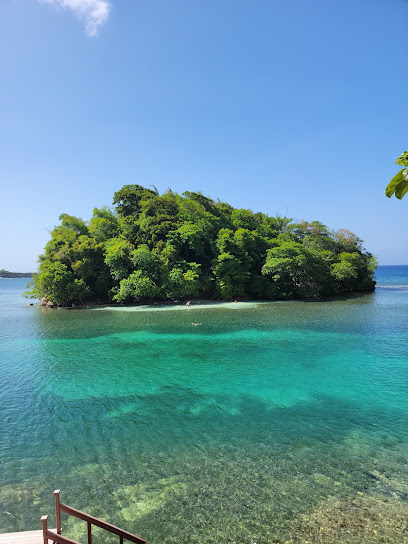
The Trident Castle
Discover the Caribbean's only castle, a stunning architectural gem in Port Antonio, offering history, luxury, and breathtaking ocean views.
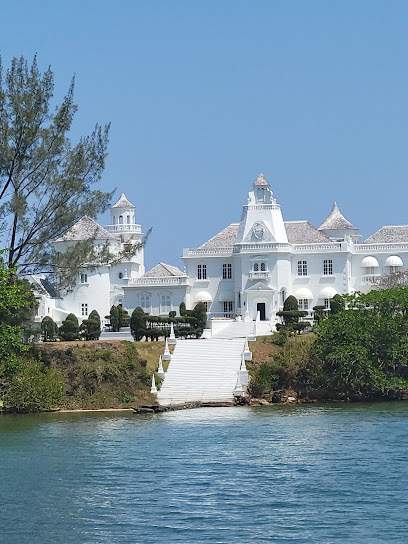
Kanopi House
Eco-luxury treehouse accommodations overlooking the Blue Lagoon in Port Antonio, Jamaica. A unique rainforest retreat awaits.

Boston Beach
Experience Jamaica's surf culture and savor authentic jerk cuisine at Boston Beach, a unique destination on the island's northeastern coast.
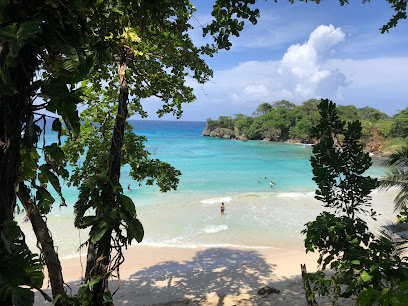
San San Beach
Discover San San Beach: a tranquil Jamaican paradise with white sands, clear waters, and vibrant marine life near Port Antonio.
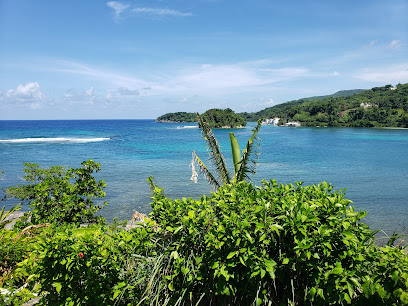
Unmissable attractions to see
Emancipation Park
Explore Emancipation Park in Kingston, Jamaica, a beautiful historical landmark that combines nature and culture for a serene escape.
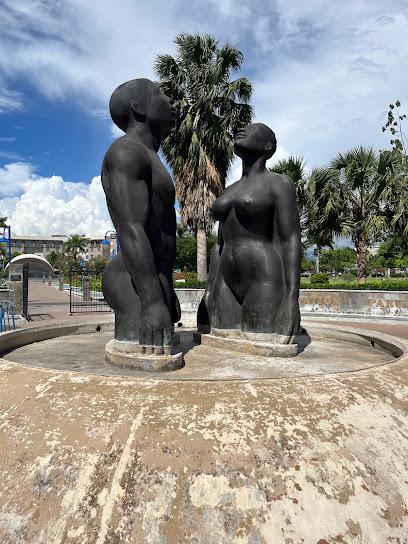
Bob Marley Museum
Explore the Bob Marley Museum in Kingston, Jamaica, and delve into the life of reggae's legendary icon. Experience music, culture, and history in one vibrant location.
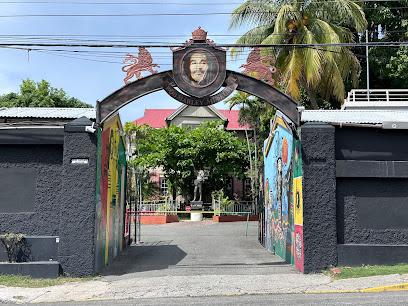
Hope Botanical Gardens
Discover the serene beauty of Hope Botanical Gardens in Kingston, a lush retreat showcasing Jamaica's vibrant flora and rich biodiversity.
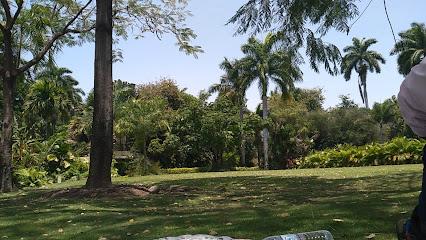
Saint William Grant Park
Discover the tranquility and cultural richness of Saint William Grant Park in the heart of Kingston, Jamaica, a must-visit destination for every traveler.
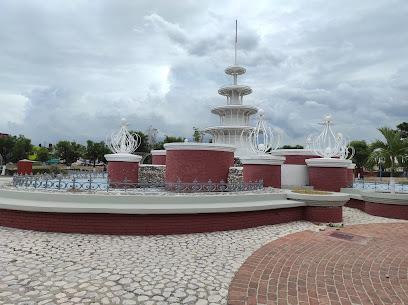
Independence Park
Explore Independence Park in Kingston, Jamaica: A vibrant stadium that embodies the spirit of independence and culture, perfect for sports and local events.
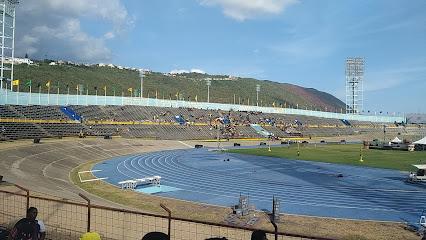
Blue Mountains National Park
Explore the enchanting Blue Mountains National Park in Jamaica, a UNESCO World Heritage Site bursting with diverse wildlife, stunning landscapes, and outdoor adventures.
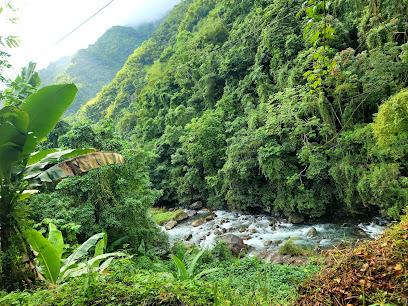
Castleton Botanical Gardens
Explore the lush landscapes of Castleton Botanical Gardens, a tropical haven filled with exotic plants and vibrant flowers in the heart of Jamaica.
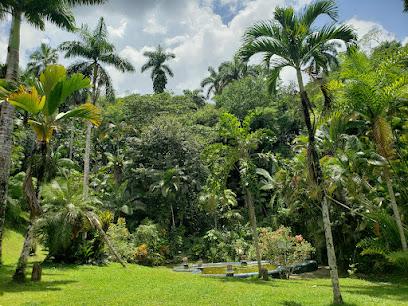
National Heroes Park
Discover the tranquil beauty and rich history of National Heroes Park, a serene retreat in the heart of Kingston, Jamaica.
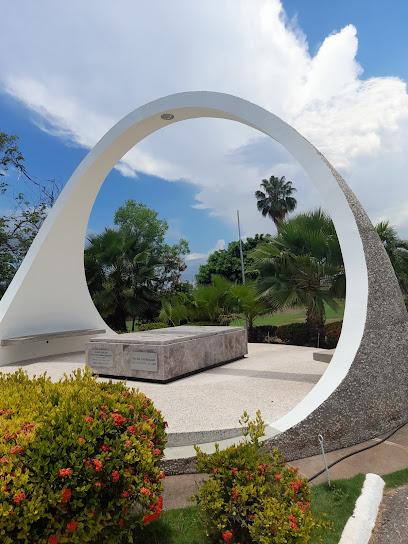
Reach Falls
Discover the enchanting beauty of Reach Falls, a serene ecological park in Jamaica offering stunning waterfalls and lush landscapes for nature lovers.
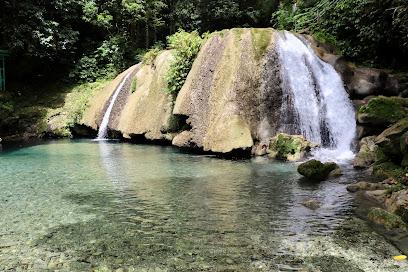
Fort Charles
Explore the historic Fort Charles in Port Royal, Jamaica, where maritime history meets breathtaking coastal views.
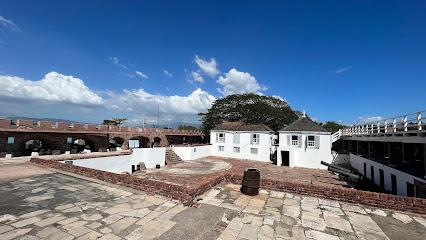
Reggae Falls Travel & Tours
Experience the captivating beauty of Reggae Falls, where nature and reggae culture come together in a stunning Jamaican paradise.
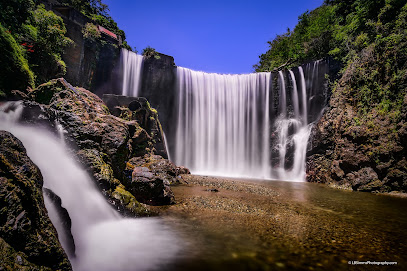
Errol Flynn Marina
Explore Errol Flynn Marina in Port Antonio, Jamaica: A vibrant hub for adventure, relaxation, and culinary delights by the sea.
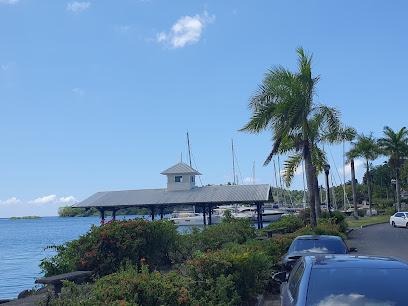
Errol Flynn Marina
Experience the beauty of Errol Flynn Marina in Port Antonio, Jamaica, where adventure meets serenity in a tropical paradise.
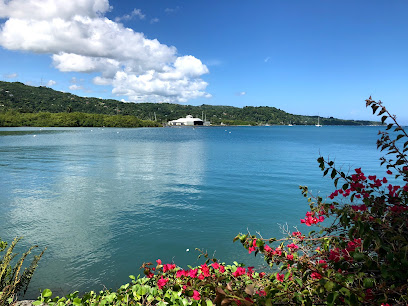
National Gallery of Jamaica
Explore the National Gallery of Jamaica for a captivating journey through the rich tapestry of Jamaican art and culture in Kingston.

Club Kingston - VIP Airport Lounge / VIP Attractions
Discover the ultimate relaxation experience at Club Kingston, the VIP lounge at Norman Manley International Airport in Kingston, Jamaica.
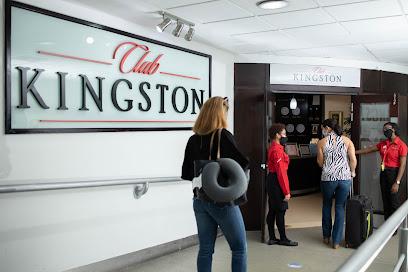
Essential places to dine
Roots 21 Bar & Kitchen
Discover authentic Jamaican flavors at Roots 21 Bar & Kitchen in Port Antonio – where culinary tradition meets vibrant atmosphere.
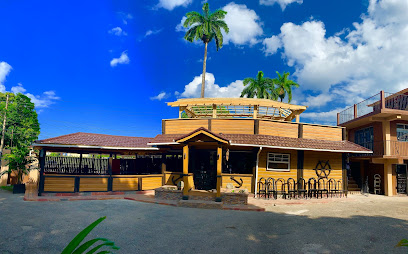
Portland Jerk Centre
Savor authentic Jamaican jerk chicken at Portland Jerk Centre – a must-visit culinary hotspot in Port Antonio for food lovers!
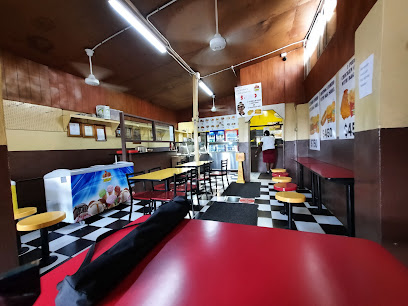
Di Hip Strip Ultra Lounge
Discover authentic Jamaican cuisine and vibrant nightlife at Di Hip Strip Ultra Lounge in Port Antonio - a must-visit hotspot for travelers.
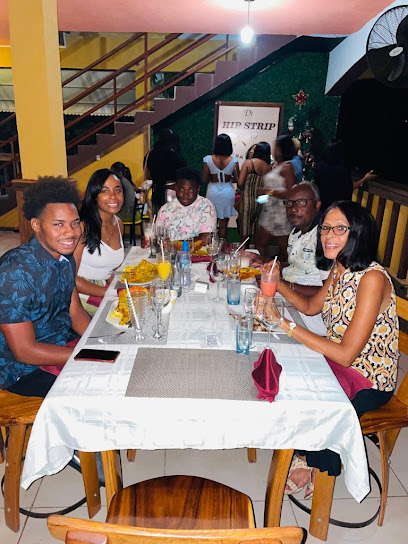
Soldier Camp Bar& Grill
Experience authentic Jamaican flavors at Soldier Camp Bar & Grill in Port Antonio – where every meal is a taste of paradise.
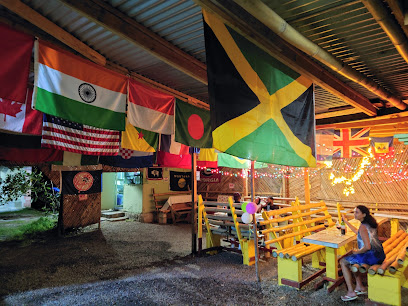
Wilkes Cuisine Seafood Restaurant
Experience authentic Jamaican seafood at Wilkes Cuisine Seafood Restaurant in Port Antonio – where every dish tells a story.
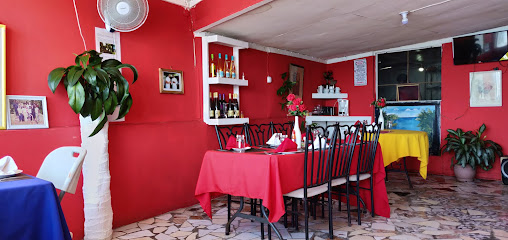
Pizza Corner
Discover authentic Italian flavors at Pizza Corner in Port Antonio - where every slice tells a story of tradition and taste.
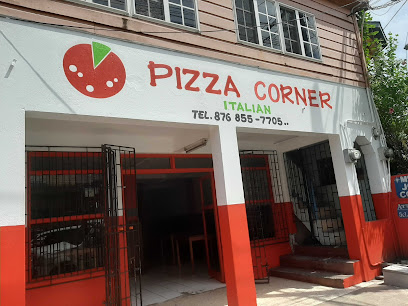
zilla's kitchen
Experience authentic Jamaican flavors at Zilla's Kitchen in Port Antonio - where every dish tells a story.
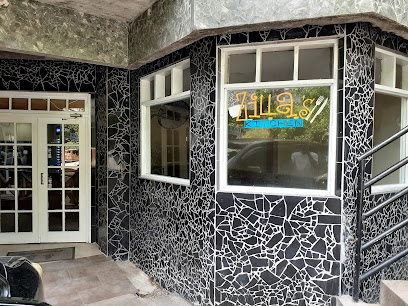
Piggy's Jerk Centre
Experience the authentic taste of Jamaica at Piggy's Jerk Centre in Port Antonio - where every bite tells a story.
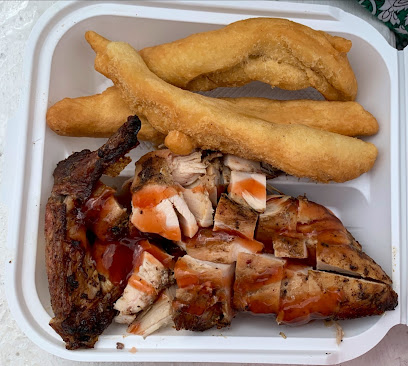
Survival Beach
Experience the untouched beauty of Survival Beach in Port Antonio – where pristine sands meet vibrant local culture.
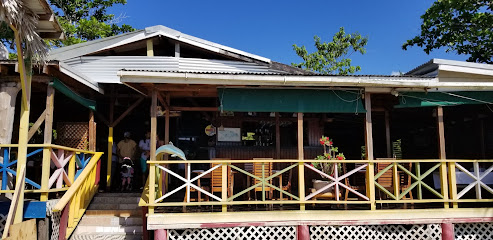
658 Plates Restaurant
Experience authentic Jamaican cuisine at 658 Plates Restaurant in Port Antonio - a must-visit dining destination for food lovers.
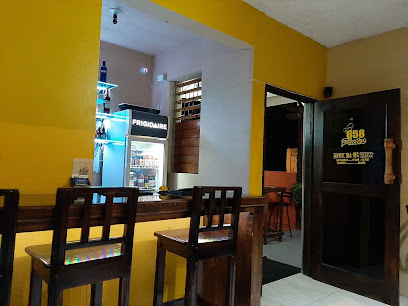
Fusion Bites
Discover exquisite flavors at Fusion Bites, where Jamaican ingredients meet international culinary artistry in Port Antonio.
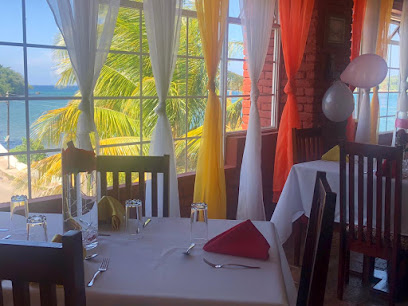
Coastline Bliss
Experience exquisite Jamaican cuisine at Coastline Bliss in Port Antonio - where every meal comes with stunning ocean views.
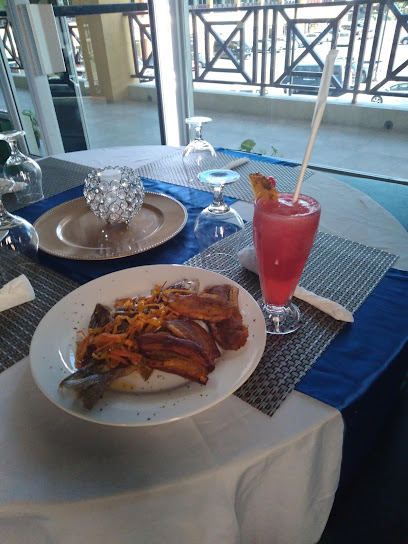
Portie Roti Restaurant & Lounge
Discover authentic Jamaican cuisine at Portie Roti Restaurant & Lounge in Port Antonio – A must-visit for food enthusiasts seeking rich flavors.
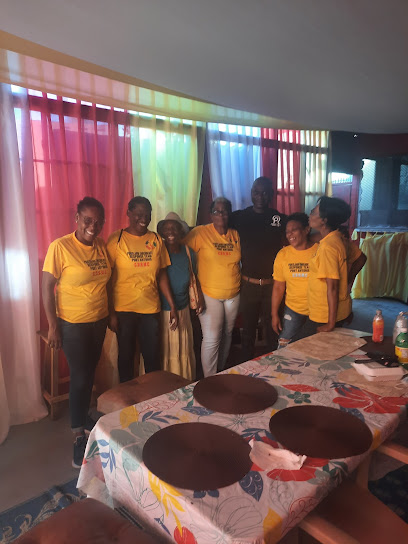
Patty Express
Experience authentic Jamaican cuisine at Patty Express in Port Antonio - home to deliciously flaky patties bursting with flavor.
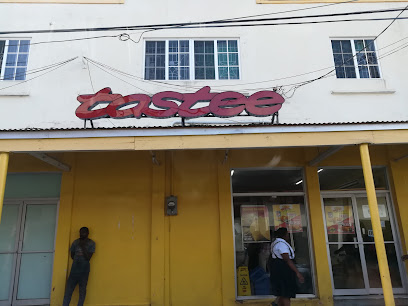
Ole Marina
Discover authentic Jamaican flavors at Ole Marina in Port Antonio – where delicious cuisine meets breathtaking waterfront views.
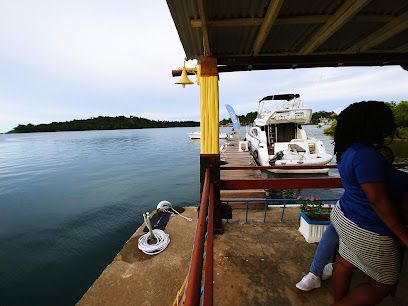
Markets, malls and hidden boutiques
Ramtulla Supercentre/ Hardware
Experience the local spirit of Port Antonio at Ramtulla Supercentre, your go-to shopping destination for diverse goods and vibrant community.
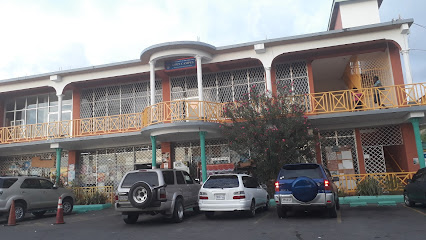
Royal Mall
Experience the lively atmosphere of Royal Mall in Port Antonio, where shopping meets dining and education in a vibrant setting.

Courts
Explore the vibrant selection of furniture and decor at Courts, a must-visit store in Port Antonio for unique Jamaican finds.
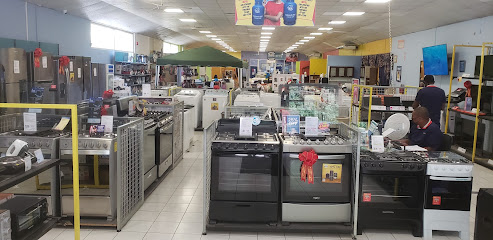
City Centre Plaza
Discover a lively shopping experience at City Centre Plaza, the vibrant heart of Port Antonio, with diverse stores and delicious dining options.
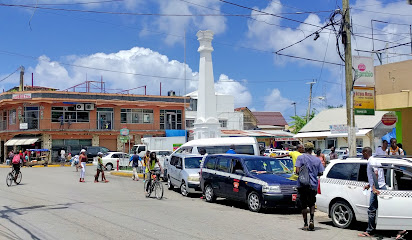
The Village, Port Antonio - A Fine Arts, Crafts, and Gifts Shopping Center
Explore unique arts, crafts, and gifts at The Village in Port Antonio, a vibrant shopping center celebrating Jamaican creativity.
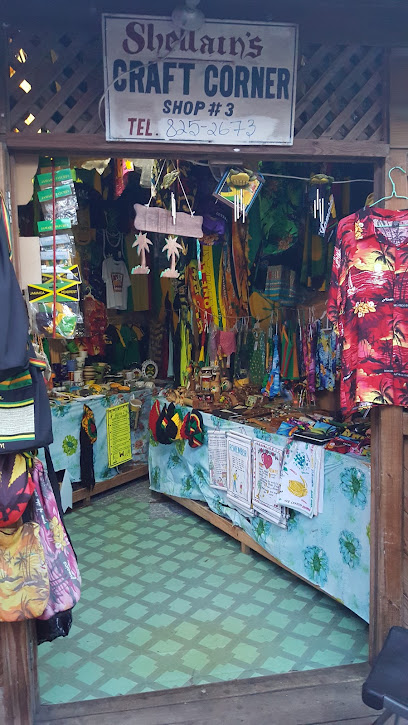
Fuji FreshCo Supermarket 福記
Experience local flavors and fresh produce at Fuji FreshCo Supermarket, a vibrant shopping destination in Port Antonio, Jamaica.
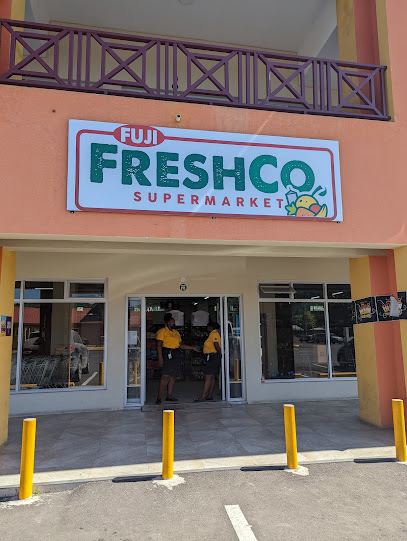
Robinson and Son's Hardware
Explore Robinson and Son's Hardware in Port Antonio for quality home goods, local charm, and exceptional service during your Jamaican getaway.
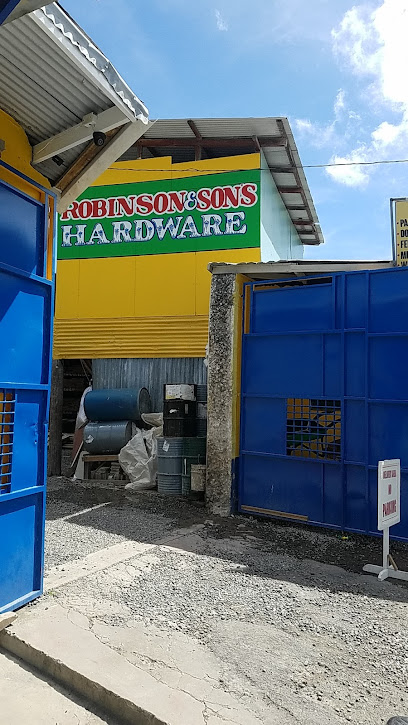
Singer Jamaica
Discover quality home goods and local crafts at Singer Jamaica, a vibrant store in Port Antonio offering a true taste of Jamaican culture.
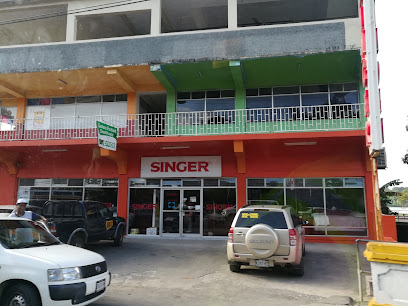
Bayshore Plazas
Discover the vibrant shopping, dining, and entertainment experiences at Bayshore Plazas in Port Antonio, Jamaica.
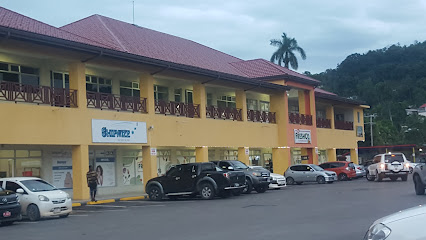
Petal's Variety Store & Beauty Supplies
Discover the charm of Petal's Variety Store & Beauty Supplies in Port Antonio, where local culture meets convenience for tourists and residents alike.
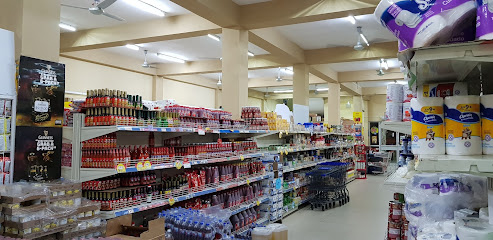
Lees Maxi Mart
Experience the best of Jamaican shopping at Lees Maxi Mart in Port Antonio, where local products and vibrant culture come together.
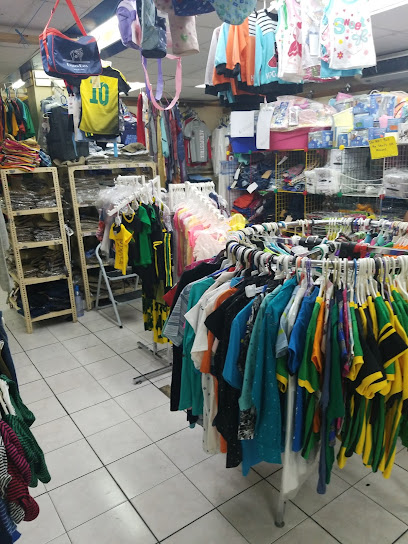
Devon House Ice-cream
Experience the taste of Jamaica with delicious ice cream at Devon House Ice Cream, the perfect treat for tourists in Port Antonio.
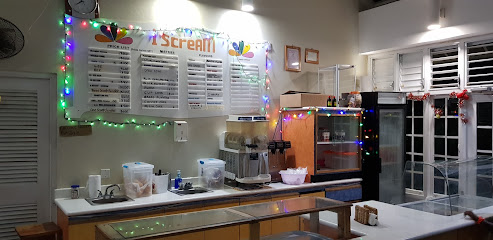
Glitz and Glamour Jewelers
Explore exquisite jewelry at Glitz and Glamour Jewelers in Port Antonio, a must-visit for unique designs and exceptional craftsmanship.
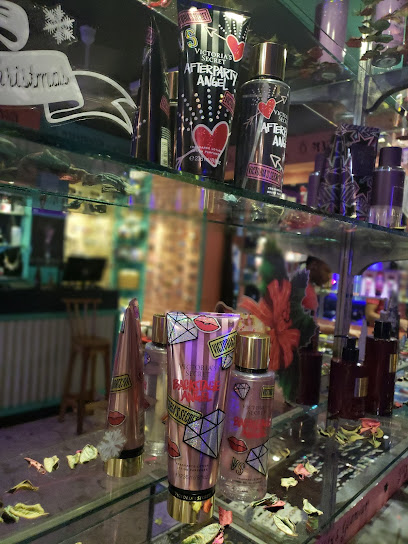
Triple C Mini Mart
Explore the local flavors and vibrant culture of Port Antonio at Triple C Mini Mart, your go-to grocery store for fresh produce and unique Jamaican products.

Cottage Lane
Experience the essence of Jamaica at Cottage Lane, your go-to grocery store for fresh local produce and authentic Caribbean flavors.
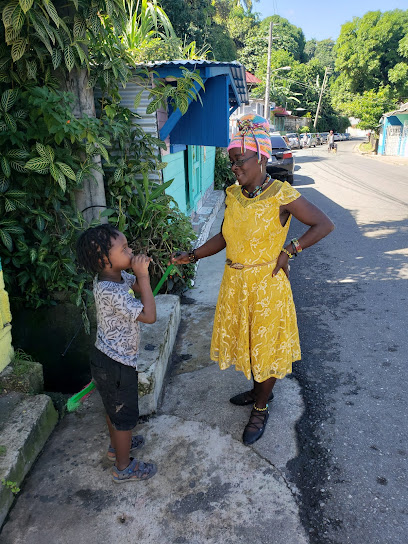
Essential bars & hidden hideouts
Roots 21 Bar & Kitchen
Savor the flavors of Jamaica at Roots 21 Bar & Kitchen, where local cuisine meets a vibrant dining atmosphere.
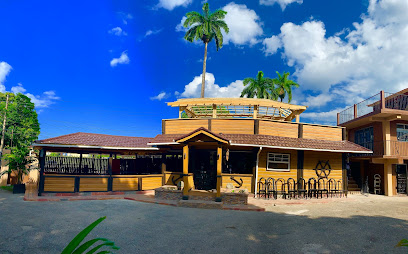
Di Hip Strip Ultra Lounge
Discover the vibrant charm of Di Hip Strip Ultra Lounge, a culinary gem in Port Antonio offering delicious dishes and lively entertainment.
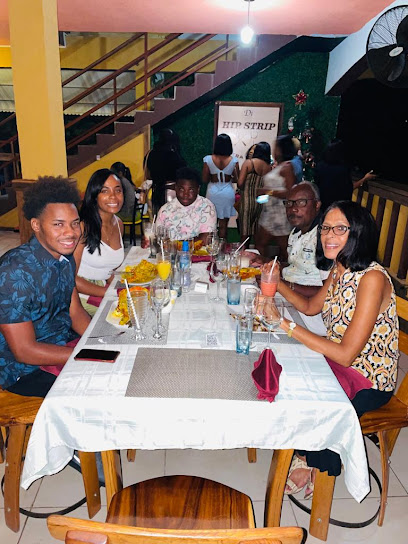
Soldier Camp Bar& Grill
Discover the vibrant flavors of Jamaica at Soldier Camp Bar & Grill, where local cuisine meets a lively Caribbean atmosphere in Port Antonio.
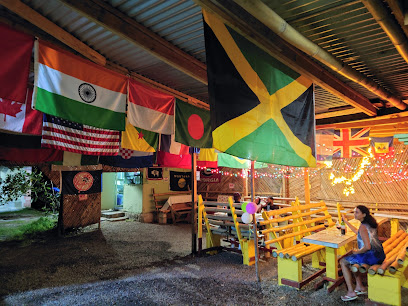
Survival Beach
Experience the untouched beauty and delicious local flavors of Survival Beach in Port Antonio, Jamaica, a serene escape from the everyday hustle.
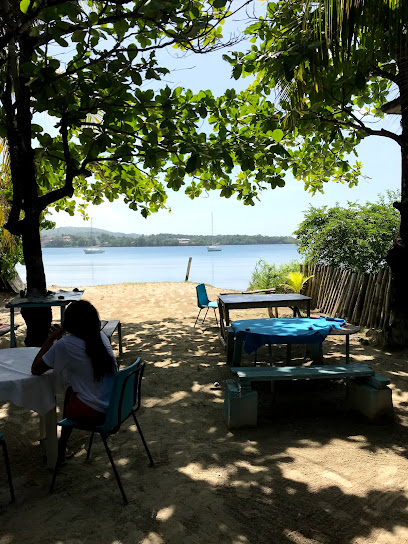
Fusion Bites
Experience the vibrant flavors of Jamaica and international cuisine at Fusion Bites, a fine dining haven in Port Antonio.
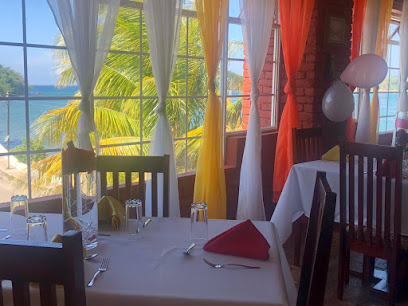
Ole Marina
Discover the flavors of Jamaica at Ole Marina, a vibrant restaurant in Port Antonio where fresh seafood meets local culinary traditions.
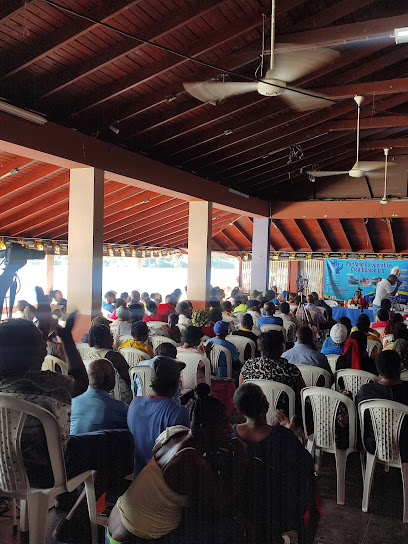
Irie Vibes Sports Bar
Experience the vibrant sports culture of Jamaica at Irie Vibes Sports Bar in Port Antonio, where every game is a celebration filled with local flavors.
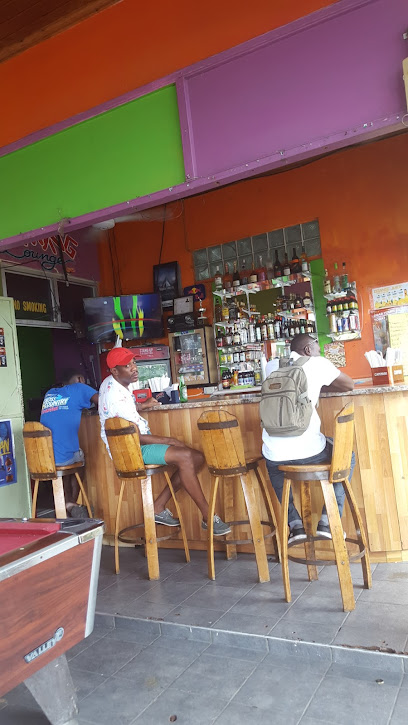
Anna Banana Ocean House
Experience authentic Jamaican cuisine with breathtaking ocean views at Anna Banana Ocean House in Port Antonio.
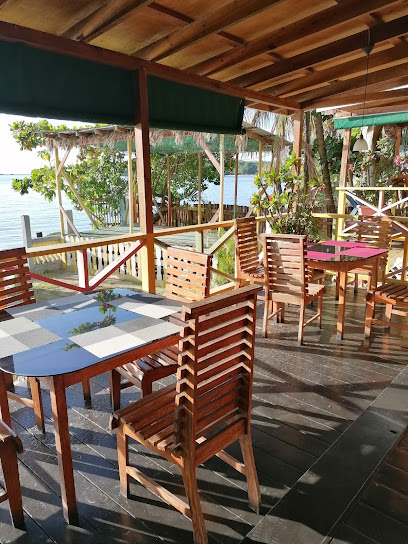
TheZone Bar & Lounge
Dive into the vibrant nightlife at TheZone Bar & Lounge in Port Antonio, where music, drinks, and good times come together.
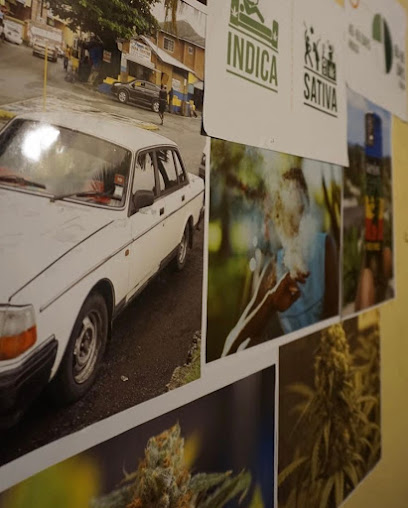
Ava Container Bar
Discover the vibrant Ava Container Bar in Port Antonio, where local flavors meet a unique atmosphere in a tropical paradise.
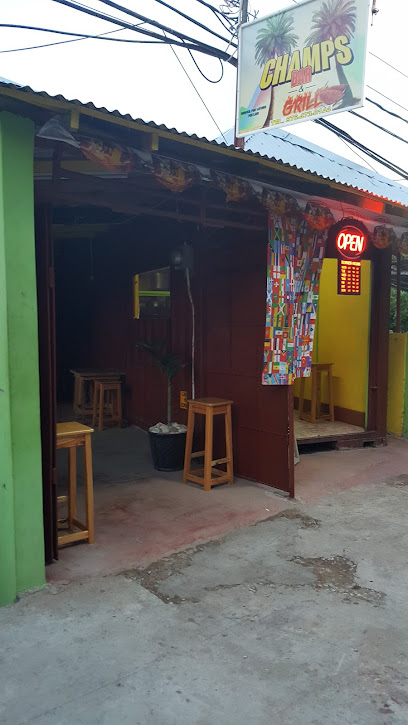
Jus Booze
Experience the vibrant nightlife of Port Antonio at Jus Booze, where great drinks and lively atmosphere await every visitor.
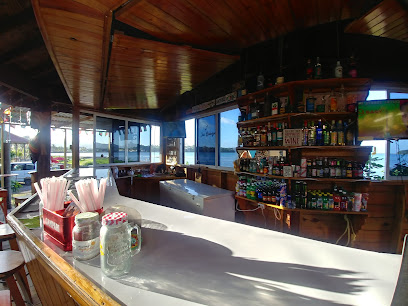
Uppaleague Sports bar & grill
Experience the vibrant flavors of Jamaica at Uppaleague Sports Bar & Grill, where delicious grilled dishes meet a lively atmosphere in Port Antonio.

Tuff rock bar
Discover Tuff Rock Bar in Port Antonio, where stunning views and vibrant local culture come together for an unforgettable experience.

The Hitz Bar & Restaurant
Savor authentic Jamaican cuisine at The Hitz Bar & Restaurant in beautiful Bryans Bay, Port Antonio, where delicious food meets stunning coastal views.

Travel experiences inspired by this city
Explore more travel diariesLocal Phrases
-
- HelloWa gwaan
[Wa gwaan] - GoodbyeMi a guh now
[Mi a guh now] - YesYa man
[Ya man] - NoNuh
[Nuh] - Please/You're welcomeLikkle more
[Likkle more] - Thank youRespect
[Respect] - Excuse me/SorrySarry
[Sarry] - How are you?How yuh stay?
[How yuh stay?] - Fine. And you?Mi deh yah
[Mi deh yah] - Do you speak English?Yu speak English?
[Yu speak English?] - I don't understandMi nuh undastan
[Mi nuh undastan]
- HelloWa gwaan
-
- I'd like to see the menu, pleaseMi wah si di menu, pls
[Mi wah si di menu, pls] - I don't eat meatMi nuh nyam meat
[Mi nuh nyam meat] - Cheers!Cheers!
[Cheers!] - I would like to pay, pleaseMi woulda like fi pay, pls
[Mi woulda like fi pay, pls]
- I'd like to see the menu, pleaseMi wah si di menu, pls
-
- Help!Help!
[Help!] - Go away!Gwaan weh!
[Gwaan weh!] - Call the Police!Call di Police!
[Call di Police!] - Call a doctor!Call di docta!
[Call di docta!] - I'm lostMi lost
[Mi lost] - I'm illMi sick
[Mi sick]
- Help!Help!
-
- I'd like to buy...Mi wah buy...
[Mi wah buy...] - I'm just lookingMi jus a look
[Mi jus a look] - How much is it?A wah price a dat?
[A wah price a dat?] - That's too expensiveDat too much
[Dat too much] - Can you lower the price?Yu can drop di price?
[Yu can drop di price?]
- I'd like to buy...Mi wah buy...
-
- What time is it?A wah time it deh?
[A wah time it deh?] - It's one o'clockA one o'clock
[A one o'clock] - Half past (10)Half pass ten
[Half pass ten] - MorningMawnin
[Mawnin] - AfternoonAftanoon
[Aftanoon] - EveningEvenin
[Evenin] - YesterdayYestadeh
[Yestadeh] - TodayToday
[Today] - TomorrowTomarruh
[Tomarruh] - 1One
[One] - 2Two
[Two] - 3Tree
[Tree] - 4Fo'
[Fo'] - 5Five
[Five] - 6Six
[Six] - 7Seven
[Seven] - 8Eight
[Eight] - 9Nine
[Nine] - 10Ten
[Ten]
- What time is it?A wah time it deh?
-
- Where's a/the...?Wey di...deh?
[Wey di...deh?] - What's the address?Wah di address deh?
[Wah di address deh?] - Can you show me (on the map)?Yu can show mi pan di map?
[Yu can show mi pan di map?] - When's the next (bus)?Wen di nex (bus) deh?
[Wen di nex (bus) deh?] - A ticket (to ....)A ticket (to ....)
[A ticket (to ....)]
- Where's a/the...?Wey di...deh?
History of Port Antonio
-
Long before the arrival of Europeans, the area that is now Port Antonio was inhabited by the Taino people. They were the indigenous inhabitants of Jamaica and lived off the land through fishing, hunting, and agriculture. Their rich culture and advanced society laid the foundation for the region's history.
-
In 1494, Christopher Columbus arrived in Jamaica, marking the beginning of Spanish colonization. Although the Spanish did not extensively settle in Port Antonio, their influence left a mark on the region's history. They introduced new crops, animals, and European customs, which began to alter the native way of life.
-
In 1655, the British captured Jamaica from the Spanish, and Port Antonio became a key site under British rule. The town was officially established in the early 18th century and quickly grew in importance due to its strategic location and natural harbor. Fort George was constructed in 1729 to defend against pirate attacks and foreign invasions.
-
The late 19th century saw Port Antonio rise to prominence as the 'Banana Capital of the World.' American entrepreneur Lorenzo Dow Baker made Port Antonio the center of his banana shipping enterprise, bringing economic prosperity to the town. The banana trade attracted visitors and investors, leading to the development of infrastructure and tourism.
-
In the 1940s and 1950s, Port Antonio became a glamorous destination for Hollywood stars and the international jet set. Errol Flynn, a famous actor, purchased Navy Island and was instrumental in promoting the area as a luxurious retreat. His influence brought global attention to Port Antonio, making it a haven for celebrities and affluent travelers.
-
Port Antonio's rich history has made it a cultural melting pot. The town's population includes descendants of the Taino, African slaves, European colonizers, and more recent immigrants. This diverse heritage is reflected in the area's music, food, and festivals. The annual Maroon Festival, celebrating the traditions of the Maroon communities, is a highlight of the local cultural calendar.
-
Today, Port Antonio is known for its natural beauty and laid-back charm. It has retained much of its historic character while adapting to modern tourism. Visitors can explore the historic Titchfield Peninsula, enjoy the pristine beaches, and experience the vibrant local culture. Despite its growth, Port Antonio remains a place where history and nature coexist harmoniously.
Port Antonio Essentials
-
Port Antonio is located on the northeastern coast of Jamaica. The nearest international airport is Norman Manley International Airport in Kingston, approximately 60 miles away. From the airport, you can take a taxi, hire a private car, or use a shuttle service to reach Port Antonio. The journey typically takes around 2 to 3 hours by road. Alternatively, you can fly into Sangster International Airport in Montego Bay and then take a scenic drive along the coast, which takes about 4 hours.
-
Port Antonio is a small town, and many attractions are within walking distance. For longer trips, local taxis are readily available and relatively inexpensive. Public buses and minibuses (route taxis) operate within the town and connect to nearby areas. Renting a car can also be a convenient option for exploring the surrounding areas at your own pace. Bicycles and scooters are available for hire and provide an eco-friendly way to get around.
-
The official currency in Jamaica is the Jamaican Dollar (JMD). Credit cards are accepted in most hotels, restaurants, and shops, but it is advisable to carry some cash, especially in smaller establishments and rural areas. ATMs are available in Port Antonio, and it is wise to withdraw sufficient cash before traveling to more remote areas. US Dollars are also widely accepted, but the exchange rate may not be favorable.
-
Port Antonio is generally a safe destination for tourists. However, like any travel destination, it is advisable to take standard precautions. Avoid walking alone at night in unfamiliar areas and keep an eye on your belongings in crowded places. While Port Antonio itself is relatively safe, some areas in the larger cities like Kingston have higher crime rates targeting tourists. Always stay vigilant and aware of your surroundings.
-
In case of emergency, dial 119 for immediate assistance. The local police station and medical facilities are available in Port Antonio. It is recommended to have travel insurance that covers medical emergencies. For minor health issues, there are pharmacies in the town where you can purchase over-the-counter medications. The Port Antonio Hospital provides emergency medical services for more serious conditions.
-
Fashion: Do dress modestly in public areas and religious sites. Swimwear should be confined to beaches and pools. Religion: Do respect local customs and traditions. It is considered polite to greet people with a friendly 'Good morning' or 'Good afternoon.' Public Transport: Do be courteous and offer your seat to elderly passengers. Don’t eat or drink on public transport. Greetings: Do greet locals with a firm handshake or a friendly nod. Jamaicans are generally warm and welcoming. Eating & Drinking: Do try local delicacies and accept food offerings graciously. Don’t refuse hospitality, as it is considered impolite.
-
To experience Port Antonio like a local, visit the local markets where you can buy fresh produce and traditional Jamaican goods. Engage with locals, as they are often friendly and willing to share stories about the town's history and culture. Don't miss visiting the Blue Lagoon, Frenchman's Cove, and the Rio Grande for rafting. For a unique experience, take a boat trip to Navy Island, which offers beautiful views and a rich history.
Trending Landmark in Port Antonio
Nearby Cities to Port Antonio
-
Things To Do in Portmore
-
Things To Do in Ocho Rios
-
Things To Do in Runaway Bay
-
Things To Do in Treasure Beach
-
Things To Do in Black River
-
Things To Do in Montego Bay
-
Things To Do in Savanna-la-Mar
-
Things To Do in Negril
-
Things To Do in Jérémie
-
Things To Do in Les Cayes
-
Things To Do in Saint-Marc
-
Things To Do in Jacmel
-
Things To Do in Gonaïves
-
Things To Do in Port-au-Prince
-
Things To Do in Petionville














